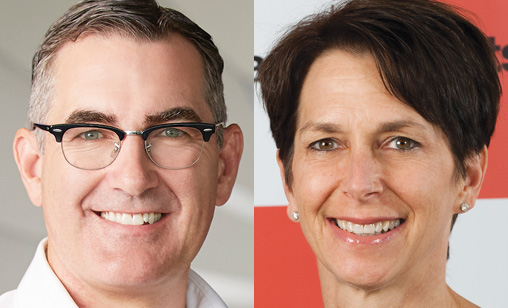News Backgrounder
Virgin Australia begins fight back under new owner
The Asia-Pacific’s biggest victim of the coronavirus pandemic, Virgin Australia, is back in the game. Out of receivership and with a new owner, it will be a very different airline to pre-COVID-19 Virgin Australia. Associate editor and chief correspondent, Tom Ballantyne, reports.
July 1st 2020
It came a little earlier than expected, after U.S. investor, Cyrus Capital Partners, withdrew its bid for Virgin Australia (VA), and accused administrator, Deloitte, of a “lack of engagement” in the sales process. Read More » Its decision left Boston-headquartered Bain Capital as the last bidder standing and the new owner of the debt-ridden airline. No-one was saying officially how much the deal is worth, but it is understood the offer was a US$1.13 billion package that included $412 million to assume existing travel credits for passengers and $309 million for VA staff entitlements.
Current VA shareholders - Singapore Airlines (20%), Etihad Airways (20%), HNA Group (20%), Nanshan Group (20%) and Sir Richard Branson’s Virgin Group’s 10% - will walk away from the negotiating table empty handed.
 |
VA collapsed in April under the weight of US$4.7 billion in debt. It had lost money for seven consecutive years and the coronavirus sealed its fate.
What is certain is VA under Bain will undergo major corporate surgery including job losses, fleet shrinkage and network shrinkage. Current CEO, Paul Scurrah, who had instituted major economies at the airline group before the onset of COVID-19, is keeping his job, at least for the time being.
VA will remain headquartered in Brisbane after the Queensland Government pledged $200 million in support to ensure the airline did not move south.
During the bidding process Bain’s local managing director, former Olympic diver, Mike Murphy, declared the U.S. firm was “a stayer, not a player”, intimating the new owner was in it for the long run. “We are determined to see Australians have access to competitive, viable aviation services for the long-term and ensure the airline emerges offering exceptional experiences at great value while continuing to service business travelers and those of us travelling for fun or to visit loved ones,” he said.
VA will not be returning to its roots as a re-born Virgin Blue, the original budget carrier launched in late 2000. Nor will it be the ambitious player envisaged by long-time CEO, John Borghetti, who transformed the budget Blue into today’s full-service Virgin Australia. It will be a “hybrid”, far smaller and, given the circumstances, a purely domestic carrier, initially at least.
Murphy told The Australian Financial Review: “We are not looking to attack the very high end of corporate Australia.” Murphy added VA’s earlier battle for business travellers “was not a happy outcome for anybody”.
The top priority for the new VA is fleet rationalization. LCC Tigerair Australia and its fleet of eight A320-200s and six 737-800s will not fly again with the group. The VA fleet of 94 aircraft will be reduced to a maximum of 70 and possibly as few as 60.
The slimming down process will include returning six A330s to lessors and five B777ERs that will become redundant to VA’s requirements. It is understood Bain agreed with a plan, devised by Scurrah, to replace the wide-bodies with eight B787s.
Network wise, given the pandemic, there is no potential for international flying in the short to medium term. VA’s only long-haul service, to Los Angeles, will be terminated and its planned launch to Tokyo, postponed by the virus outbreak, will be shelved. Longer term, when border restrictions are lifted, international routes VA will fly will be limited to short-haul destinations such as New Zealand, Bali and perhaps the Pacific Islands. Those decisions are some way into the future.
In the meantime, VA will focus on Australia’s most profitable domestic routes, including the “Golden Triangle” between Sydney, Brisbane and Melbourne. Bain also has promised to strengthen VA’s regional services; important given the Queensland Government’s involvement in the carrier, and the fact VA has a strong intra-state network in place.
Bain not only will keep VA’s lucrative Velocity Frequent Flyer program intact, along with all the points held by members, and the “pricing architecture” of redemptions – but will “bring the Velocity and Virgin brands closer together”.
The Bain purchase has returned a well-known personality to the industry fold. Former Jetstar CEO, Jayne Hrdlicka, played a leading role in Bain’s bid for the VA group and is expected to take a seat on group’s new board.